What's in a name? The row that's lasted 50 years
- Published
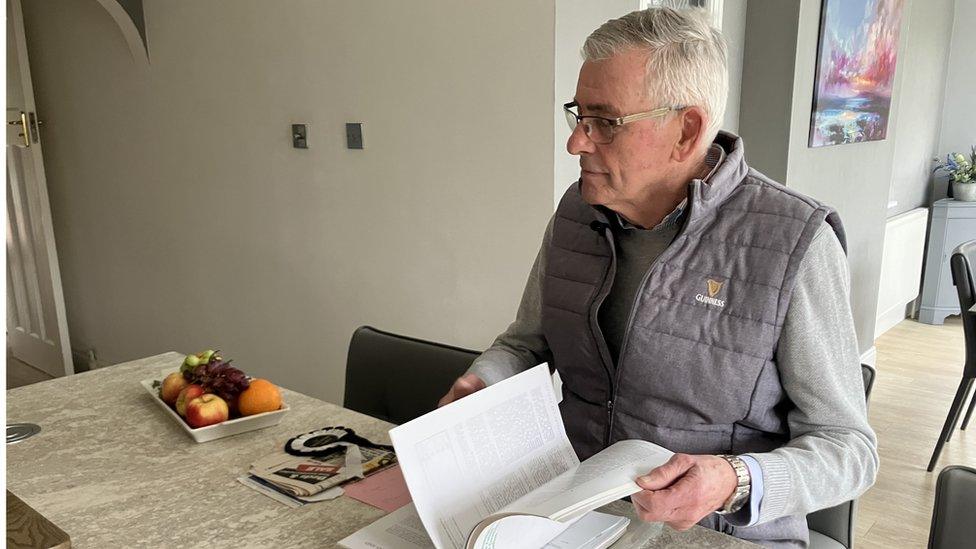
The changes of 1974 essentially told people like Brian Birch they no longer lived in the county they were born in
Across parts of Greater Manchester and Merseyside there are still many buildings emblazoned with the word Cheshire.
And in Southport, some businesses include Red Rose - the emblem of the county of Lancashire - in their names.
But 50 years ago, people living on the Wirral, or in Altrincham, or on parts of what was once the Lancashire coastline, suddenly found themselves denizens of new places entirely.
The changes that came on 1 April 1974 created the new metropolitan counties of Merseyside and Greater Manchester and the borough of Sefton.
While each area still had a borough council, they were under the umbrella of new county councils - in some cases, counties that the towns were previously not part of.
The effect was that towns and villages were pulled into the gravitational field of the larger towns or cities nearby and to this day, the shift continues to provoke a debate that has local identity at its heart, as much as it does local politics.
'We'd be better off'
At his home in Southport, 74-year-old Brian Birch is still appalled at being wrenched from Lancashire when he was 24.
He believes the town has lost funding and influence to Bootle, in the south of the Sefton borough.
"Our roots are in Lancashire," Brian says.
"We would have been much better off as a town in Lancashire because we would have had more control over what happens in Southport."
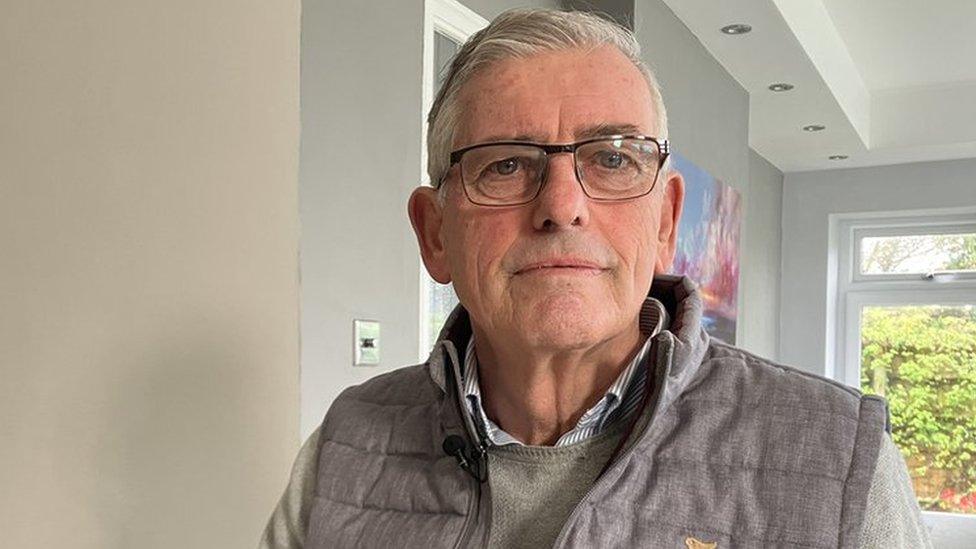
No matter what anyone else says, Brian Birch considers himself to live in Lancashire
But the issue is not just about politics for retired printer Brian, but identity.
"Certainly, my identity is as a Lancastrian.
"I am a Lancastrian - born in Southport, Lancashire, and still live in Southport, Lancashire."
Real Housewives of where?
The debate over where places actually are was reignited in 2020, in the midst of the introduction of the coronavirus pandemic tier system, when Altrincham and Hale - as parts of Greater Manchester - were placed under more severe restrictions than neighbouring Cheshire.
Social media was briefly ablaze with jokes about renaming a popular TV show The Real Housewives of Greater Manchester, and how people living in the affluent suburbs were "realising they live in Greater Manchester, not Cheshire, as their estate agent advertised".
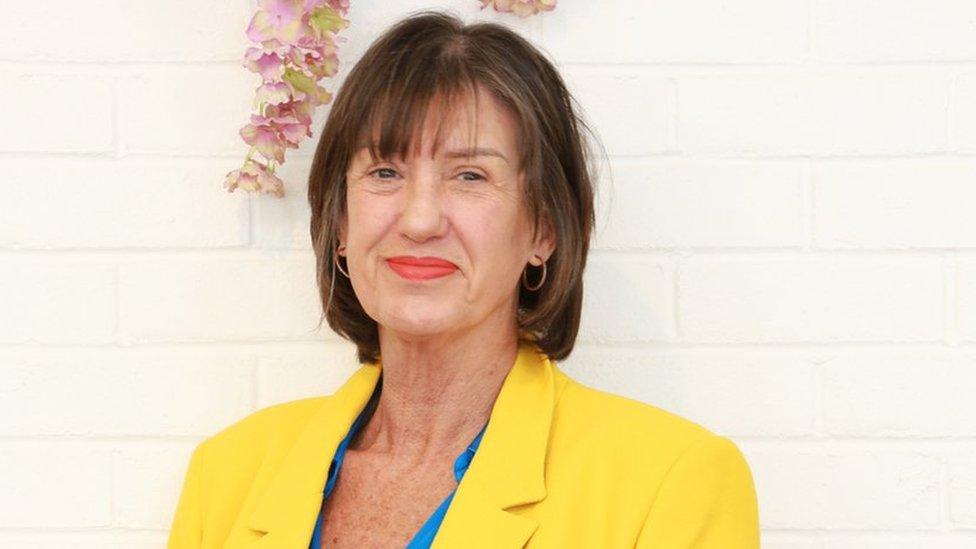
Cheshire Life editor Joanne Goodwin says there is "kudos" in being able to say you live in Cheshire
Joanne Goodwin, the editor of Cheshire Life magazine, which firmly includes former Cheshire enclaves of Greater Manchester and Wirral in its coverage, has some sympathy with the complaints.
"Fifty years on, it's still a massive issue of controversy," she says.
"I wouldn't say it's snobbery, but it's the kudos a Cheshire address still holds."
She said in those places now considered Greater Manchester, there is "still very much an aura of Cheshire".
"The old money and new money combined to make a county that is probably, of all the English counties, the one that people like to say they come from."
The tussle over county identity became headline news in Bolton last year, when 3,000 people signed a petition calling on the town to be returned to Lancashire.
Bolton Council ultimately rejected the idea.
Some Boltonians to whom BBC News spoke said they firmly identified with Lancashire, while others considered themselves to be from Greater Manchester.
'Hugely controversial'
When the plans for the 1972 Local Government Act were still being hatched, ahead of them coming into force two years later, they provoked much debate in both the House of Commons and the House of Lords.
Michael Fidler, who represented Bury and Radcliffe, told the Commons the proposed and later abandoned merger of Bury and Rochdale was a "shotgun marriage" that might as well be given the unfortunate portmanteau name "Botchdale".
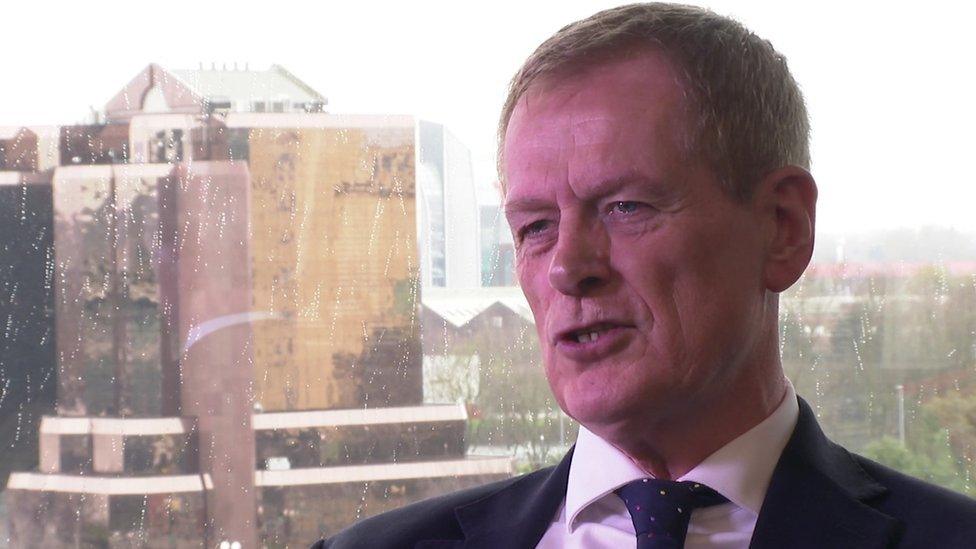
Professor Jon Tonge says the changes were "hugely controversial" at the time
The name would in the end be consigned to the annals of the parliamentary record Hansard, but around the country - from Merseyside to the newly-created Humberside region - new counties with new names were popping up.
So, what was the point of these changes, brought in by the Conservative government of Edward Heath, if they were not just a rather unimaginative rebranding exercise?
Jon Tonge, professor of politics at the University of Liverpool, says the idea was to make local government more efficient.
"There were 1,200 councils across the country," he says.
"The government argued that a smaller number of councils would be more efficient, and they wanted to replace geography with demography.
"Local government took no account of the fact we had these huge city-based populations, these huge conurbations, particularly here in the North West."
He says the changes were "hugely controversial because it was chopping up our historic counties", and adds the changes paved the way for the metropolitan-based local government powerhouses of today.
And it could be argued that those cities were, in the end, the winners.
"If you go to [Manchester city centre] it's been transformed," says Gareth Downing, an economics expert at Manchester Metropolitan University.
"That's where you have seen all the economic growth, but there was a study a few years ago looking at Manchester as a whole and, actually, it has got one of the highest levels of regional inequality in the UK.
"So you can understand why perhaps some of the people in Oldham, Rochdale or Wigan or wherever are not actually so keen on this idea of being part of Greater Manchester."
'Spirit of Merseyside'
Back in Sefton, Merseyside - or Lancashire, as Brian would see it - 40-year-old digital marketing company owner Sarah Jackson likes to feel part of the Liverpool City Region.
The body was established in 2014 at the will of the Conservative-Liberal Democrat coalition, and the word Mersey is notably absent from its title.
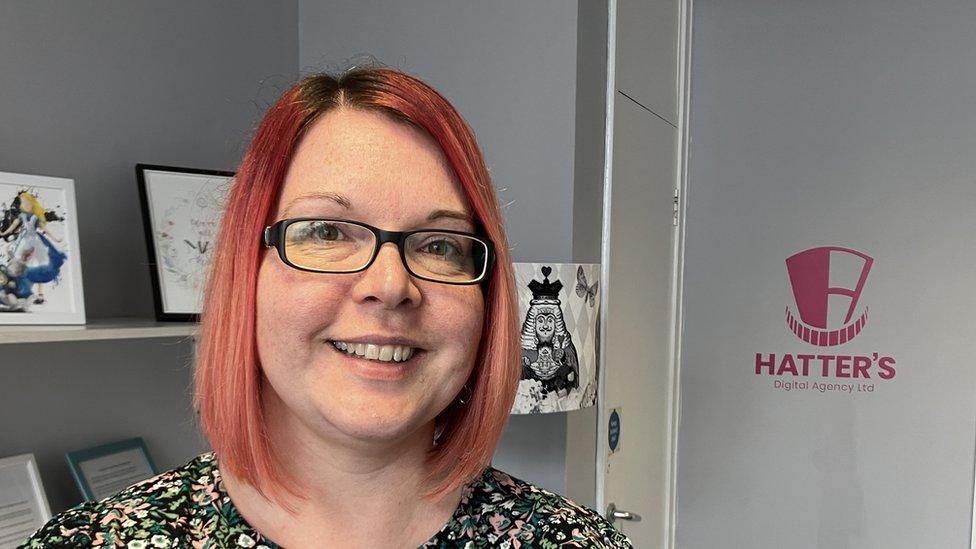
Sarah Jackson says she feels the other Merseyside boroughs have welcomed Southport into the fold
Sarah feels the "arms wide open" approach to Southport of Liverpool and the other boroughs, which also includes one Cheshire council, reflects the "really kind of loving, generous spirit that exists in Merseyside".
"I don't know why you would want to reject that," she says, adding that "older people" may have "stereotypical ideas about who and what Liverpool is, and don't want to be aligned to it".
But not so, says Brian, who saw his hometown of Southport fall under the umbrella of Merseyside five decades ago.
"I worked in Liverpool for the last 20 years of my career," he says.
"Worked with some of the finest people I've ever met.
"It's not an issue with Liverpool - it's an issue with democracy."
Ever closer union?
Although Merseyside County Council may be a distant memory - abolished after just 12 years in 1986 - each of the separate unitary boroughs of Liverpool, Wirral, Sefton, Knowsley, St Helens and Halton have been drawn into ever closer union by successive changes made by the government.
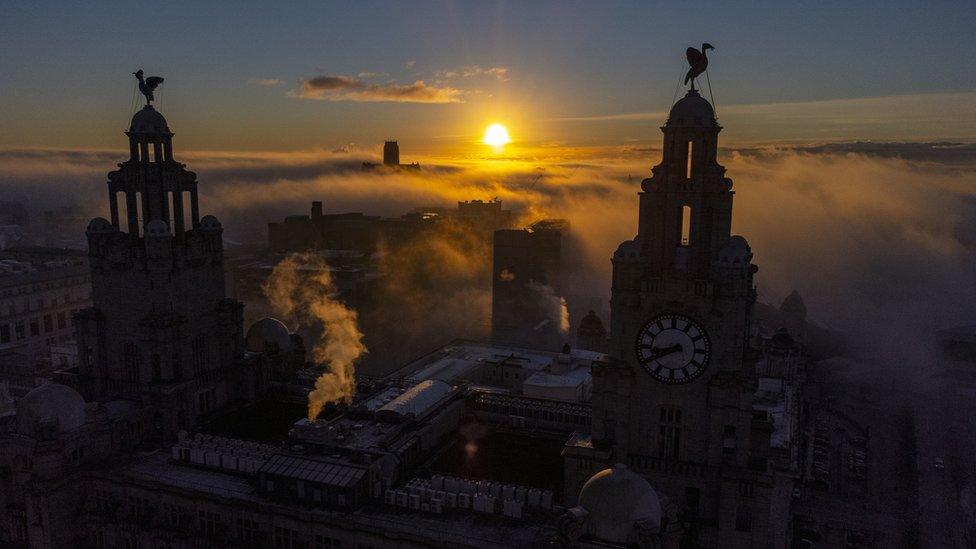
Liverpool is now the place that gives its name to the regional authority on what was renamed Merseyside in 1974
Like the towns in Greater Manchester - who also saw their county council wound up in 1986 - they share a metropolitan mayor, and police and crime commissioner, and if devolution and levelling up policies continue as planned, they may prove to be the glue that further bonds the areas together.
Even with all that, there is little to suggest Brian will ever see himself as a Merseysider.
But can it really still matter to him that he no longer lives in the administrative county of Lancashire, half a century later?
"More so," he says. "More so."

Why not follow BBC Manchester on Facebook, external, X, external and Instagram, external? You can also send story ideas to northwest.newsonline@bbc.co.uk, external